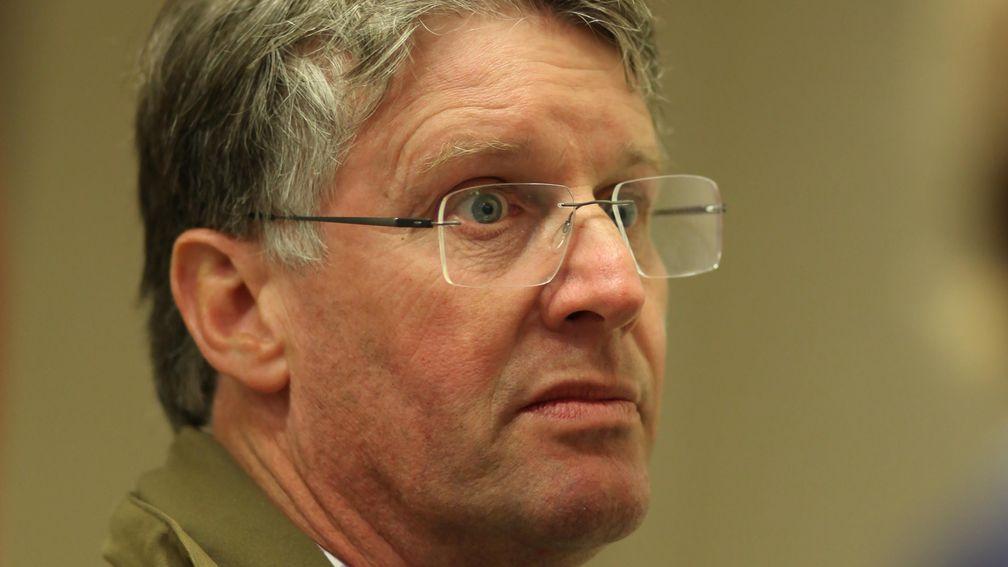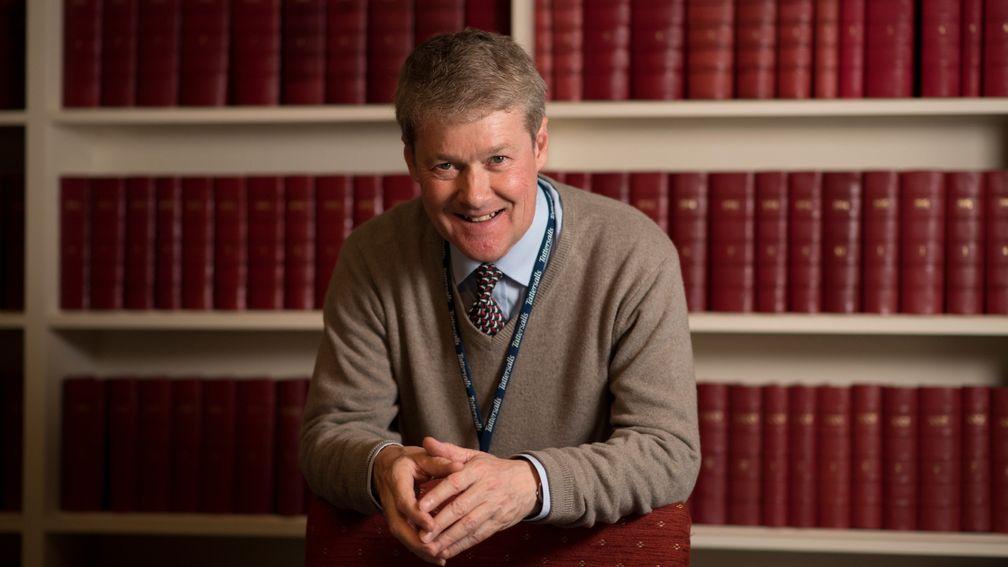Bloodstock industry pledges to change as BHA review reveals unethical practices

A willingness to adapt and change was the overriding reaction from the bloodstock industry following the publication of the BHA's long-awaited review into the buying and selling of bloodstock and racehorses on Thursday.
The 83-page review, which was commissioned over two years ago and offers a forensic analysis of the bloodstock industry, contains a series of recommendations designed to reform a sector in which the report states the "vast majority" conduct themselves with integrity, but which has been harmed by "a culture of unethical, and in some cases unlawful, business practices by a small number of unscrupulous individuals".
However, in his summing up, Justin Felice, a former leading police officer who led the report, writes: "We have found clear and compelling evidence of widespread instances of breaches of agency and fiduciary duties . . . which in certain circumstances also constitute potential criminal offences, including under one or more of the Bribery Act 2010, the Fraud Act 2006 and the Criminal Law Act 1977. There are also concerns that certain alleged practices could constitute money laundering and/or tax fraud offences."
Eight recommendations were made by Felice in the review, including that British racing's governing body should take over as regulator of the bloodstock industry.
Read the full BHA Bloodstock Review
One of the recommendations has already been acted upon, with the creation of the Bloodstock Industry Forum (BIF) which brings together representatives from several areas of the sport.
The BIF's first meeting was held in September, and Jimmy George, Tattersalls marketing director and forum chair, said: "The bloodstock industry welcomes the BHA review of the buying and selling of racehorses and bloodstock in Britain, and since August has been working closely with the BHA in response to the findings and recommendations included in the review, many of which have already resulted in action.
“In line with the recommendations of the review, BIF was officially formed and now comprises representatives of the Federation of Bloodstock Agents, Goffs, the National Trainers Federation, the Racehorse Owners Association, Tattersalls, the Thoroughbred Breeders’ Association, the Breeze Up Consignors Association and the BHA."
TBA board member and consignor Ted Voute added: "Everyone has come together, they've bared their souls and have plotted a way forward which goes a long, long way to meeting a lot of the recommendations from the report.
"It's not to say this is the finished article. In a short amount of time they've worked together to get a lot of the recommendations sorted out."
Another key recommendation of the review is the creation and implementation by the BHA of a licensing system for bloodstock agents. The report contains some stinging criticism about the behaviour of a small minority of agents, described as "bad apples".
Under the recommendation, anyone found to be conducting activity as an unlicensed agent would be subject to sanctions ranging from fines to exclusions.

That idea was met cautiously by the Federation of Bloodstock Agents (FBA). Oliver St Lawrence, representing the body, said: "The BIF had lengthy discussions on this topic and it was recognised by all, including the BHA, that the licensing of 'agents' in the broadest sense of the word was extremely challenging both logistically and in terms of the international norms applying to buyer participation at bloodstock sales.
"Nevertheless, the FBA is determined to put in place more rigorous requirements surrounding our membership, including an 'integrity course' for all, and to establishing membership of the FBA as a recognised and sought after 'kitemark' of personal and corporate integrity."
David Redvers, racing manager for Qatar Racing and founder of Tweenhills Stud, feels the newly formed BIF is well equipped to address the issues raised by the review, including the licensing of agents.
He said: "I don't have a problem with or without licensing, the clear thing is the industry has now put together the Bloodstock Industry Forum to discuss and organise the easiest and best way forward, and that's more important – especially as the BHA is party to the BIF than having some random licensing by the BHA.
"My view is that the BIF is the correct vehicle to deal with all the integrity issues surrounding the bloodstock industry, and the BHA is part of that, as are the sales companies, the TBA and so forth."
Over 70 people from within the industry were anonymously interviewed by Felice and his team, with quotes taken from those interviews interspersed through the review along with case studies of improper practices which, while not proven through any formal process, are believed to be accurate by the review team.
Four main improper practices were highlighted: secret profiteering, dual representation, luck money and bidding-up. All four practices are considered unethical, and in some cases potentially unlawful.
While the various quotes and case studies point to an industry tarnished by the actions of an unscrupulous minority, the review team found there has not been one recorded complaint regarding any improper practices, pointing to an ineffective code of conduct.
The current code was introduced in 2009, replacing its 2004 predecessor. No complaints were made under that code either, with the report suggesting this was because some feared being ostracised from the industry if they raised concerns.
Action is already being undertaken to overhaul the code, which was described in the review as "clearly ineffective and not even known about by a number of full-time industry participants".

George acknowledged the need for a new code, and added: "Work is well under way in producing an all-new, robust code of practice which will not only appear in all Tattersalls and Goffs sales catalogues but will be widely disseminated and available through all BIF member organisations and will be regularly reviewed.
"Crucially, the new code of practice sets out to introduce a complaints procedure independent of the industry bodies with, when necessary, ultimate sanction lying with the BHA, whose regulatory and investigative processes BIF believes to be sufficiently robust and confidential to support the implementation of the new code of practice."
Changes to the code have been welcomed by the Racehorse Owners Association, as chief executive Charlie Liverton said: "The ROA has been fully supportive of the bloodstock review. The protection of owners is paramount and ensuring that they are protected when investing in the industry is essential to both retaining and growing ownership.
"The ROA is delighted that the recommendations from the review have been implemented in the new code of practice and that the sales houses will be embedding them in their terms and conditions. The progress that has been made collaboratively, from everyone involved, will help protect owners in the buying and selling of racehorses.”
Background to the report
The report was commissioned by the BHA in June 2017. According to chief executive Nick Rust's foreword to the review, "the board was concerned about the perception of unethical practices and experiences, and a number of clear vulnerabilities had been brought to its attention". These led to concerns about the sport's ability to continue to attract investment and grow the number of owners.
Justin Felice, a retired police officer who held a number of high-profile roles in law enforcement (including chief superintendent for Lancashire Police) during a career lasting four decades, was selected to lead the report team in March 2018.
He and his team interviewed over 70 people from across the racing and bloodstock industries before delivering an interim report to the BHA board in September 2018.
A final version of the report was provided to the BHA board in July 2019 and shared with key industry stakeholders shortly after. The Racing Post published the contents of this report in August after receiving a leaked copy.
Read The Lowdown from 8.30am daily on racingpost.com and the Racing Post app for all the day's going updates, news and tips
Published on inNews
Last updated
- Join Racing Post Members' Club for the very best in racing journalism - including Patrick Mullins' unmissable trip to see Gordon Elliott
- Racing Post Members' Club: 50% off your first three months
- Join the same team as Ryan Moore, Harry Cobden and other top jockeys with 50% off Racing Post Members' Club
- 'It’s really exciting we can connect Wentworth's story to Stubbs' - last chance to catch master painter's homecoming
- The jumps season is getting into full swing - and now is the perfect time to join Racing Post Members' Club with 50% off
- Join Racing Post Members' Club for the very best in racing journalism - including Patrick Mullins' unmissable trip to see Gordon Elliott
- Racing Post Members' Club: 50% off your first three months
- Join the same team as Ryan Moore, Harry Cobden and other top jockeys with 50% off Racing Post Members' Club
- 'It’s really exciting we can connect Wentworth's story to Stubbs' - last chance to catch master painter's homecoming
- The jumps season is getting into full swing - and now is the perfect time to join Racing Post Members' Club with 50% off